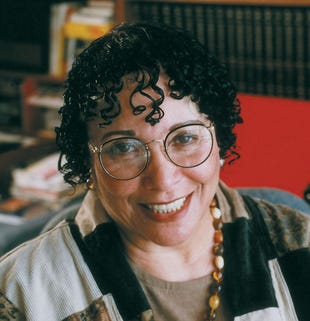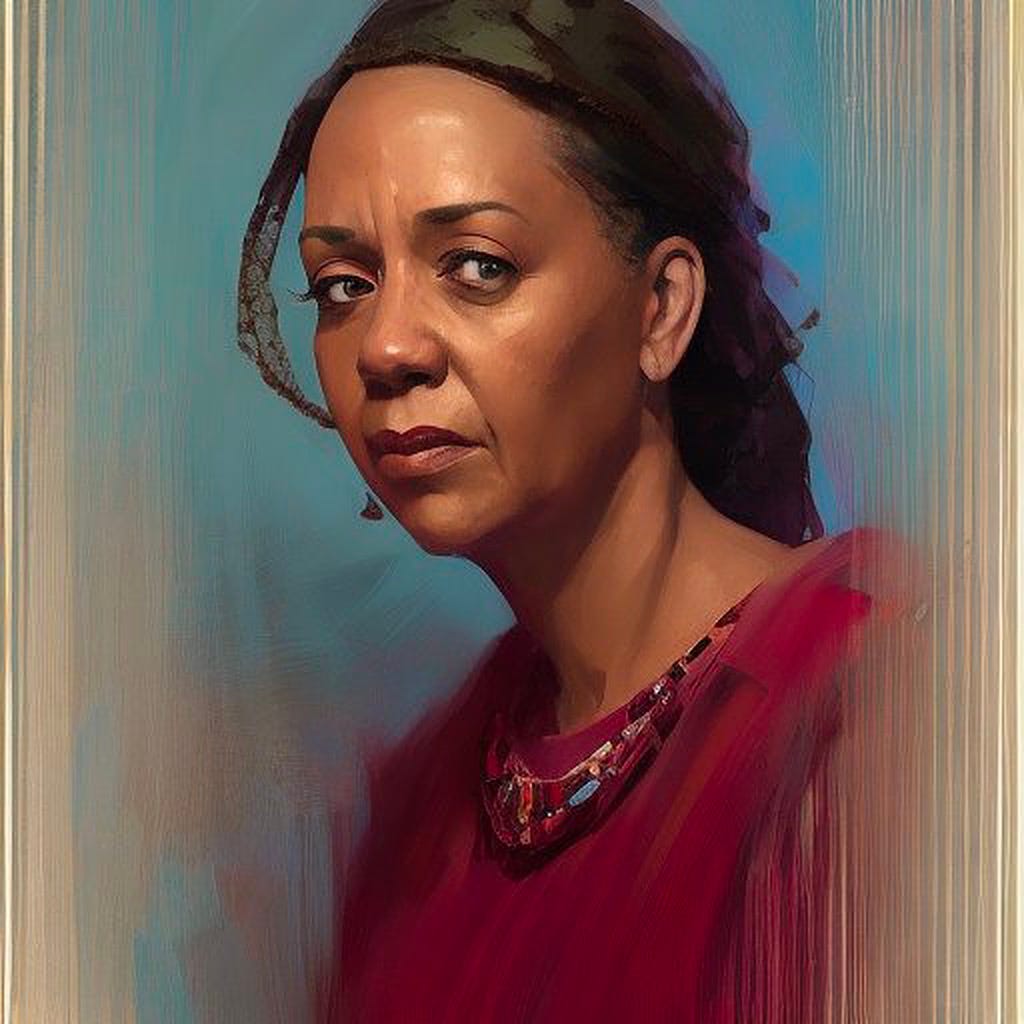Today In Black History: Virginia Esther Hamilton
Award-winning Children's Book Author
Issue #652 Today In Black History, Friday, June 28, 2024
Help us to reach our June 2024 goals: +125 total subscribers and +75 paid subscribers:
Please share and subscribe to help us grow this publication.
If you like us, REALLY like us, please click the “Like” button at the end of this post!
Also, please scroll to the end of this post for other ways to financially support us and We Are Speaking with our books and courses.
We appreciate your support!
Today’s Black History WOW!
Virginia Esther Hamilton was born on March 12, 1936, in Yellow Springs, Ohio, to Kenneth James Hamilton and Etta Belle Perry Hamilton. She grew up on the farmlands her mother’s family had owned since the late 1850s, when Virginia’s grandfather, Levi Perry, was brought into the state as an infant via the Underground Railroad.
Hamilton received a full scholarship to attend Antioch College but later transferred to Ohio State University. She majored in literature and creative writing. She moved to New York City in 1958, working as a museum receptionist, cost accountant, and nightclub singer, while she pursued her dream of being a published writer. She studied fiction writing at the New School for Social Research under Hiram Haydn, one of the founders of Atheneum Press.
Virginia Hamilton's prolific career spanned over three decades, during which she authored more than 35 books that were characterized by their deep exploration of African American folklore, history, and contemporary issues. Some of her most notable books include:
"Zeely" (1967) - Hamilton's debut novel received critical acclaim for its portrayal of African American rural life and themes of identity and self-discovery.
"M. C. Higgins, the Great" (1974) - This groundbreaking novel earned Hamilton the Newbery Medal, making her the first African American author to receive this prestigious award. The book also won the National Book Award and the Boston Globe-Horn Book Award.
"The People Could Fly: American Black Folktales" (1985) - This collection of folktales showcased Hamilton's talent for weaving together historical and cultural narratives. The book received the Coretta Scott King Award and the Hans Christian Andersen Award.
"Sweet Whispers, Brother Rush" (1982) - A poignant exploration of family, love, and supernatural elements, this novel was awarded the Coretta Scott King Award and was a Newbery Honor book.
Virginia Esther Hamilton won many awards for her works, including:
The Hans Christian Andersen Award for Writing (the highest international recognition bestowed on an author or illustrator of children's literature),
The Laura Ingalls Wilder Award (which is now known as the Children's Literature Legacy Award) and the University of Southern Mississippi de Grummond Medal.
The Catholic Library Association's Regina Medal, which is given annually "for continued, distinguished contribution to children's literature".
The MacArthur Fellowship, the first writer of children's books to win this award.
The 1975 National Book Award and Newbery Medal for M. C. Higgins, the Great.
The Edgar Allan Poe Award.
The Coretta Scott King Award, and
The Boston Globe-Horn Book Award
Virginia Hamilton passed away from breast cancer on February 19, 2002, but her legacy endures. Her stories continue to inspire new generations of readers and writers, affirming the importance of diverse narratives in understanding and appreciating the human experience.
Hamilton's influence is also felt through the Virginia Hamilton Conference on Multicultural Literature for Youth, held annually at Kent State University. The conference continues to promote the appreciation of multicultural literature and honors her commitment to diversity in children's books.
Today In Black History
In 1770, the Quakers opened a school for Black children in Philadelphia, Pennsylvania.
In 1839, Cinque (original name Senghbe), the son of a Mende king, was kidnapped along with several others and sold into slavery in Cuba. Later Cinque and his companions carried out the successful revolt on the slave ship Amistad.
In 1930, the 1st night game between the Detroit Stars and the KC Monarchs of the Negro Leagues was played in the newly built Hamtramck Stadium, which is now a historic site.
In 1964, the Organization for Afro-American Unity was founded in New York City by Malcolm X.
In 1971, the U.S. Supreme Court unanimously overturned the draft evasion conviction of Muhammad Ali.
In 1978, the Supreme Court ordered the University of California Medical School at Davis to admit Allan P. Bakke who filed a “reverse discrimination” suit, stating that racial quotas meant to help minorities and women were given access and opportunities previously denied for centuries were unconstitutional.
Our paid subscribers are encouraged to discuss this post in our W.A.S. Chat Community.
Join Pamela Hilliard Owens’s subscriber chat
Available in the Substack app and on web
You are also welcome to view “We Are Speaking” in Substack Notes. You can also read other Substack publications without subscribing to them when you join Notes.
This post is free to read for three days. To have access 365/24/7 to our full archive, comment on our posts, and financially support “We Are Speaking” for no more than $5 per month, please subscribe at the paid level.








